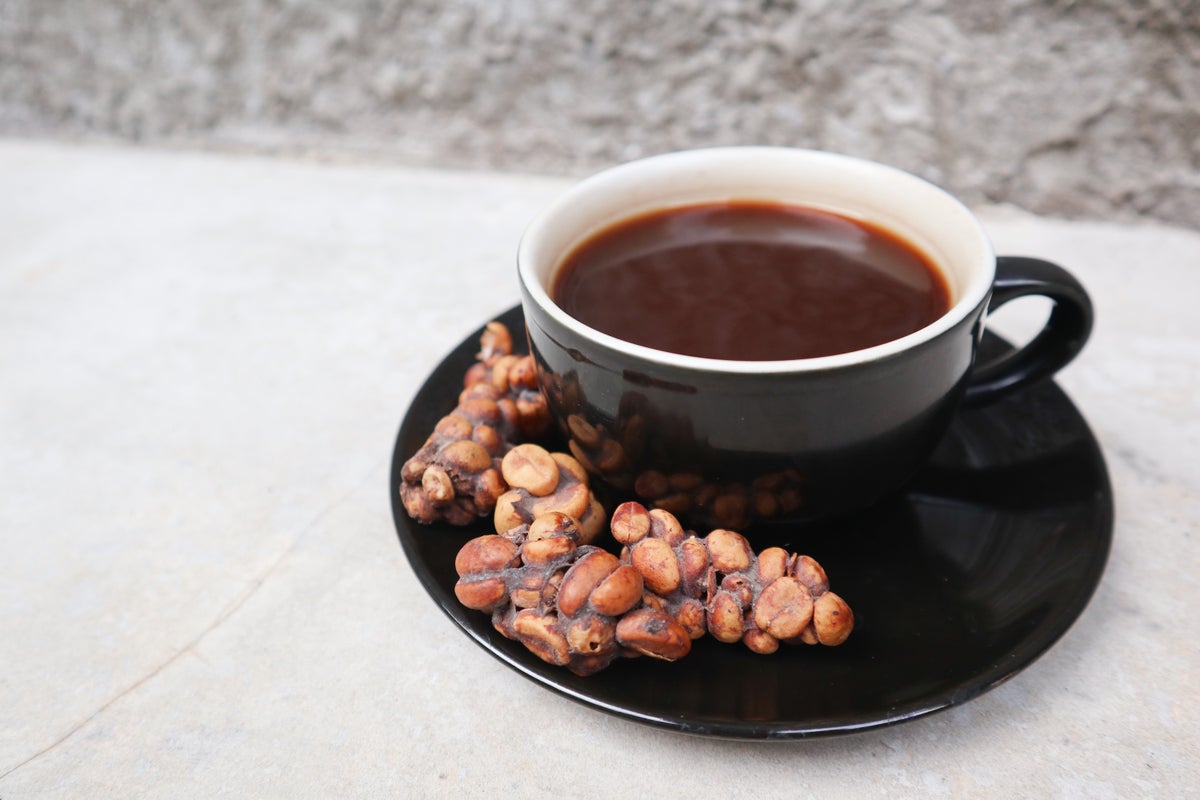Civet coffee, known for its distinctive and highly prized flavor, has long fascinated coffee enthusiasts and scientists alike. This rare and expensive brew is made from coffee beans that have been eaten and excreted by civet cats, small nocturnal mammals native to parts of Asia. Sold at prices that can exceed 100 times those of regular coffee—sometimes reaching up to $75 per cup—civet coffee has cultivated a reputation for its unique taste, which has been variously described as nutty, chocolatey, earthy, and even fishy. A recent scientific study sheds new light on the biochemical reasons behind this unusual flavor profile, revealing the role of specific fatty acids introduced during the beans’ passage through the civet’s digestive system.
The story of civet coffee, or Kopi Luwak as it is known in Indonesia where it originated, gained international attention after its appearance in the 2007 film *The Bucket List*. The process begins with Asian palm civets (Paradoxurus hermaphroditus) consuming ripe coffee cherries from coffee shrubs. The seeds inside these cherries—commonly referred to as coffee beans—are not digested but instead excreted by the civets in clumps of feces. These beans are then collected, thoroughly cleaned, and roasted to produce a coffee that commands extraordinarily high prices in the global market.
While the allure of such an exotic and rare coffee variety has driven demand, it has also led to ethical concerns. High prices incentivize some producers to keep civets in captivity, often in poor conditions, to mass-produce the coffee. Animal welfare organizations, such as the UK-based Civet Project, have raised alarms about the mistreatment of these animals on civet farms. Furthermore, there are public health concerns; the close confinement of civets and the unsanitary conditions of some farms may foster the spread of viruses with pandemic potential. These issues underline the importance of understanding civet coffee’s unique qualities without relying on animal exploitation.
In this context, a team of researchers led by zoologist Palatty Allesh Sinu from the Central University of Kerala in India undertook a detailed study of civet coffee sourced from wild civets in the Kodagu district of India. Unlike many commercial operations, these civets roam freely in their natural habitats. The researchers’ goals were twofold: to uncover the biochemical basis for civet coffee’s distinctive flavor and to find ways to replicate the coffee’s qualities without harming the animals. “Once we know the enzymes involved in digestion and fermentation, we may be able to artificially make civet coffee,” Sinu explained, emphasizing the potential to eliminate the need for caged civets.
Previous research into civet coffee had revealed some of its physical and chemical changes. For example, a 2004 study noted that beans processed by civets tend to be pitted and brittle due to exposure to gastric juices. Another study in 2019 found that roasted civet coffee beans have lower protein content and higher fat levels compared to regular roasted beans. However, the precise chemical compounds responsible for its flavor remained unclear.
The latest study, published in *Scientific Reports*, took a comprehensive approach by comparing unroasted coffee beans extracted from 68 samples of civet feces with beans taken directly from coffee plants. Using advanced gas-chromatography-mass spectrometry—a technique that identifies and quantifies chemical compounds—the researchers discovered a significant difference in the levels of two fatty acids: caprylic acid and capric acid. These substances are commonly found in dairy products and are known for their characteristic “goaty” flavors.
The elevated presence of these fatty acids in civet-processed coffee beans is thought to arise from the digestive and fermentative processes inside the civet’s gut. Specifically, bacteria belonging to the genus *Gluconobacter* and their associated enzymes play a critical role in modifying the chemical composition of the beans during digestion. This microbial activity alters the beans’ makeup in ways that contribute to the coffee’s unique and complex flavor.
However, experts caution that the flavor of civet coffee is the result of a complex interplay of many compounds and factors. Melanie-Jayne Howes, a biological chemist at the Royal Botanic Gardens, Kew in London, who has conducted her own research on coffee chemistry, notes that while fatty acids like caprylic and capric acid likely influence taste, numerous other compounds are involved. The intricate chemistry of coffee flavor involves countless

